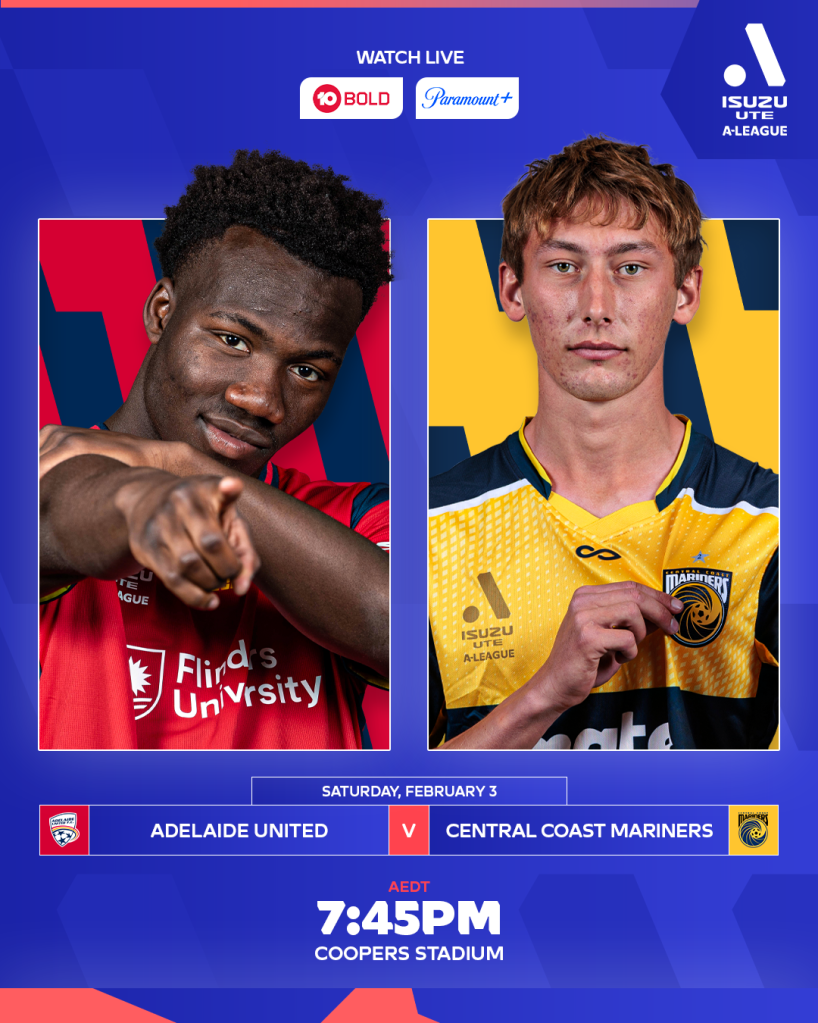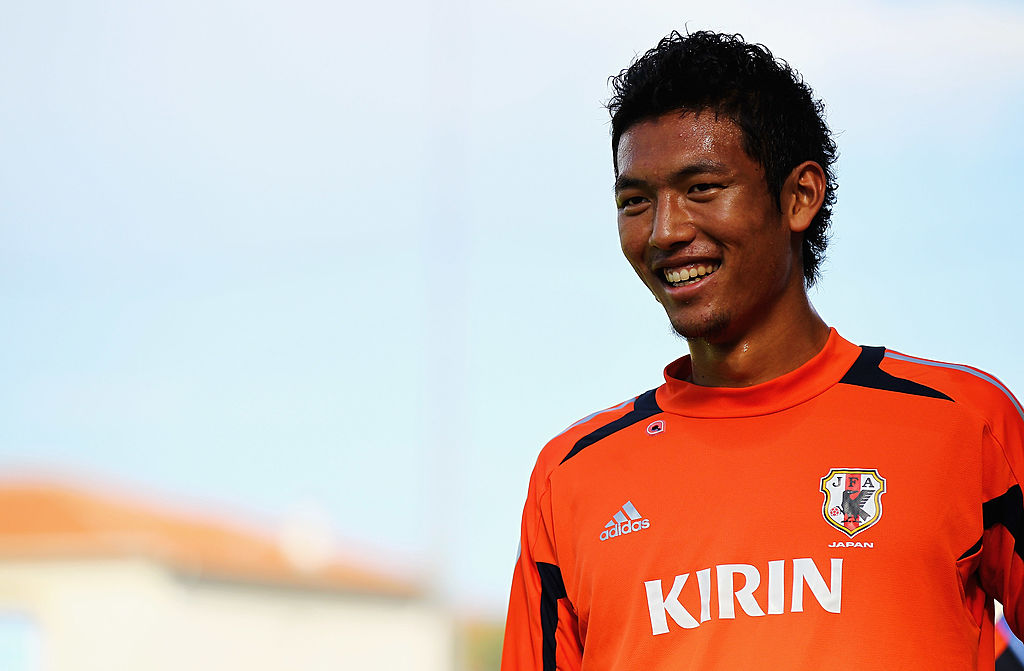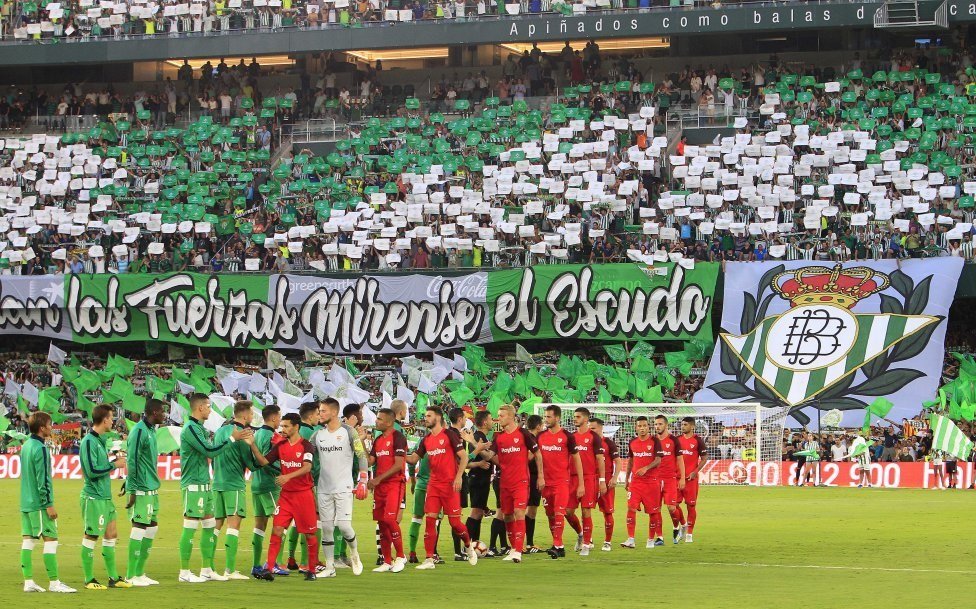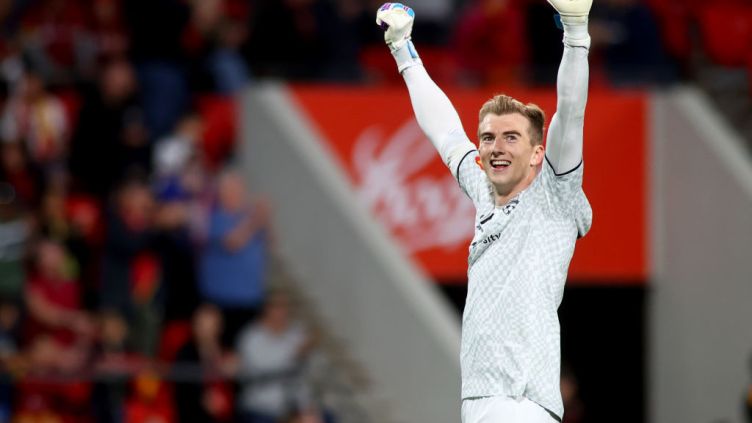Hiroshi Ibusuki’s career has taken him to some of the biggest clubs in Spain, while he has also come up against Ange Postecoglou in Japan. He speaks to aleagues.com.au about the past and the present with Adelaide United.
“No, I have never seen this,” Hiroshi Ibusuki responded.
Ibusuki was asked about Adelaide United’s famed production line and whether he had seen anything like it throughout a much-travelled career that has taken him from Japan and Spain, to Belgium and now Australia.
Adelaide are renowned for their youth program and development of talented youngsters, headlined Nestory Irankunda, Luka Jovanovic, Jonny Yull, Panashe Madanha, Ethan Alagich, Musa Toure and Giuseppe Bovalina. Plus, Mohamed Toure, Al-Hassan Toure, Yaya Dukuly and Alexandar Popovic before them.
Irankunda will move to Bundesliga giants Bayern Munich at the end of the Isuzu UTE A-League season and Popovic just completed a switch to South Korea, while star goalkeeper Joe Gauci has signed for Aston Villa in the Premier League.

“This is the first time (seeing something like this),” Ibusuki told aleagues.com.au. “A big surprise for me.”
The 32-year-old Japanese forward has provided plenty of guidance for Adelaide’s young core since arriving at Coopers Stadium in 2022.
With a CV that includes historic LaLiga clubs Sevilla and Valencia, as well as Albirex Niigata and Shimizu S-Pulse in Japan, his experience – not to mention his goals – has been a priceless commodity for Cal Veart’s side.
It has been a topsy-turvy season after Adelaide finished third and reached the semi-finals in 2022-23.
The Reds lost star captain Craig Goodwin at the start of the season but responded by winning three of their opening five games, including a 6-0 demolition of reigning premiers Melbourne City and a comprehensive 3-0 victory over defending champions Central Coast Mariners.
Adelaide, however, have managed just two wins since then (D2 L5) to sit eighth and three points outside the top six heading into Saturday’s Round 15 rematch with the Mariners in South Australia.

Asked if the Reds believe they can contend for the title in 2023-24, Ibusuki replied: “Sure, why not?
“It’s true this season it’s not the same of last season or season before. But it’s normal, we have a lot of young players. I think a lot of young players are growing during the season.
“If we go more and more games, we can play better every week. Our position, we have to focus on one game at a time. We can’t think ahead because if not, we can’t get success. I think we are going in the right direction.”
It’s all part of difficulty that is playing in the A-Leagues, according to Ibusuki – who has scored 20 league goals and 22 across all competitions since arriving.
“The Australian league is a very high level. For a Japanese player, it’s not easy to be successful in the A-League. The J1 League is also a good level, but here is also,” he explained.
“Every country plays different football. For all overseas players, it’s a really difficult league.”
Fulfilling a dream and making his debut in a Seville Derby
Born in Nagareyama – 30 minutes outside of Japan’s capital city Tokyo, Ibusuki was a multi-talented young boy.
Football, though, was number one and between the ages of 10 and 17, he played for Kashiwa Reysol.
“I think in Japan, they have very good academies,” Ibusuki said.
“Every J.League team – J1, J2, J3 – the have academies from 10 years old. Also the coaches, they come from professional players.
“In Japan, the development for young players is very good, so now a lot of players are playing in England, Spain etc.”


He is not your typical Japanese player, though. A towering forward with an aerial threat, he left his homeland without a senior appearance to play for Spanish club Girona aged 17.
This season Girona are sensationally in a race for the LaLiga title. Trying to mirror what Leicester City did when they won the 2015-16 Premier League, they are second and only two points behind juggernaut Real Madrid.
But when Ibusuki first arrived in 2009, they were in the second tier of Spanish football.
“It was an amazing experience. When I was 17, I always thought about playing overseas in Europe,” said Ibusuki, who still follows their results.
“Suddenly, this dream became true and I was very excited to go play for Girona.
“Everything was interesting about the life, football, Spain – everything. For sure, all my teammates treated me very good.”
During his time on the books of Girona, Ibusuki was loaned out to Real Zaragoza (2009-10) and Sabadell (2010-11).
At Zaragoza, he played for their reserve team and scored 12 goals in 27 matches but he also trained with the club’s senior side.
“I was training with Gabi, Ander Herrera, Roberto Ayala,” he reflected. “A lot of experienced players. It was a very good time.”
The following season, he was loaned to Sabadell and netted 10 goals in 33 appearances as they earned promotion to the second division.

Having been a key contributor in Catalonia, Ibusuki was snapped up by a team synonymous with Spanish and European football, Sevilla.
He became the first Asian player to join the record seven-time Europa League champions in 2011.
“I have very good memories,” Ibusuki reflected. “Such a big club. A lot of top-level players, legends.
“I was always with the first team training in the second half of the season with Marcellino, who is now coaching Villarreal. Also when I was at Zaragoza, the first-team coach was also Marcellino.
“With him, I trained a lot with the first team. With the Sevilla first team, it was very high level. It was so easy because the passes and first-touch were perfect. You don’t have to fix anything, just the simple stuff.”


That same season, Ibusuki made his Sevilla debut and it was in one of the biggest fixtures in the Spanish calendar – the Seville Derby against Real Betis.
Away to Sevilla’s city rival on January 21, 2012, Ibusuki came off the bench to replace 21-time Spain international Alvaro Negredo in a team that boasted Jose Antonio Reyes, Ivan Rakitic, Jesus Navas and Gary Medel.
Ibusuki, who represented Japan at the prestigious Toulon Tournament later that year, remembers the day vividly.
“The day before the game, we stayed in the hotel and then we had training at our stadium. To watch the training, maybe 3,000 fans came to watch training,” he recalled. “They said ‘come on, come on, we can’t lose’. So the day before the game, it felt like the war had started.
“Then the day of the game, to go the stadium on the bus, it could only go around 10 km/h because the whole street was full of Betis fans.
“A lot of police protection was needed but they were throwing bottles, apples at our bus. Then in the bus, we were watching motivational videos and what the game means.
“Then when we arrived at the stadium, there were maybe 100-200 Sevilla fans. When I started warming up in the second half, they were throwing lots of chewing gum or anything. It was a such a great experience.
“I think this derby is the most intense – countryside derby. It’s on another level. A special game.”
The Ange effect
After spells with Valencia’s B team and KAS Eupen in Belgium, Ibusuki returned home to Japan in 2014.
Albirex Niigata was his first port of call before stints at JEF United Chiba, Shonan Bellmare and Shimizu S-Pulse.
It was at Shonan Bellmare where he went up against Australian legend Ange Postecoglou’s Yokohama F.Marinos and witnessed his football first-hand.

“The team was very good when he was coach. They played very good football – pass and move. Our team always went to high press and go very tough with them because if not and slow down, they are very quick and score easy goal,” he said.
“When I played against them, we went high press but also we have to run a lot. They had very good tactics. It was always tough against Postecoglou’s Marinos.”
After his success with South Melbourne, Brisbane Roar and the Socceroos in Australia, Postecoglou – now managing Tottenham in the Premier League – also blazed a trail in the J1 League. Not just with F.Marinos after ending their title drought in 2019, but the entire football landscape in Japan.
“I remember the first year of him (in 2018) was difficult,” said Ibusuki. “Marinos were fighting against relegation.
“But I think the president or CEO, they made very good decision because normally it’s a quick decision. If you don’t do good for first year, it’s a very quick change for the coach.
“But he stayed longer and made a very good team. He created a culture in Marinos and Japan. He brought a new football to Japan.
“They (Marinos) make history and culture. It’s very good.”
He continued: “I had a lot of friends at Marinos and when Postecoglou was coaching, they were always telling me they enjoyed the football. They loved his style.
“It’s very good and it’s also very difficult to make players feel like this. Players are always thinking this is okay or follow the coach, but they really enjoyed it with Postecoglou.”





